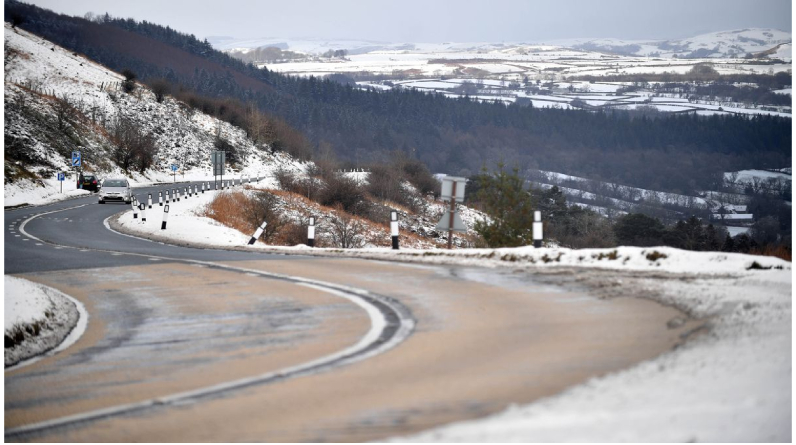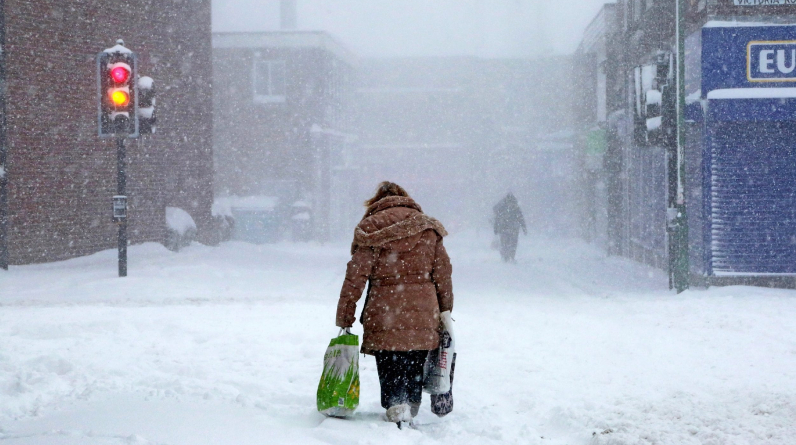Some areas of the UK have already experienced subfreezing temperatures and heavy snowfall this winter, but an upcoming weather event has raised concerns that the entire country will soon be hit by an icy blast.
The return of bitterly cold conditions before spring is “now likely,” according to forecasters, due to a major sudden stratospheric warming (SSW) event.
“sudden stratospheric warmings can lead to colder conditions over parts of the Northern Hemisphere through their interaction with the jet stream,” says Sky News weather producer Chris England.
These high pressure systems, he cautioned, which bring cold air from the north and east down to the south are not constant.
In other words, what exactly is a sudden stratospheric warming event?
The Met Office defines SSW as a period of “rapid warming occurring high up in the stratosphere,” which can have repercussions on our weather on the ground in the weeks that follow.
The stratosphere is rapidly warming, but because it is so far above us, we can’t feel it where we are.
After winds in the so-called stratospheric polar vortex weakened over the Arctic, this phenomenon occurred.
According to the Met Office, this phenomenon is known as sudden stratospheric warming because “the cold air then descends very rapidly in the polar vortex,” resulting in a rapid increase of temperatures of up to 50 degrees Celsius in the stratosphere.
As the cold air sinks, it can alter the jet stream, which can cause an extended period of dry, cold weather across the UK and northern Europe.
Find out what the weather will be like for the next five days wherever you are
Is this an annual occurrence, and will it occur this year as well?
It’s not every year that we experience SSW, and even when we do, it doesn’t always affect our weather.

“There is now over 80% chance of a major SSW occurring” this year, Prof. Adam Scaife, head of long-range forecasting at the Met Office, said.
Also Read :Scott claims that Biden and McConnell are engaging in gotcha politics regarding Social Security
Extreme winter snow events have recently hit the UK, such as the so-called Beast from the East in 2018.
However, the fact that an SSW event was responsible for blanketing much of Britain in snow in the past does not guarantee a repeat performance this year.
What, if anything, could this mean for the UK’s climate, and when might it take effect?
As previously mentioned, freezing temperatures like those experienced in 2018 have been linked to major SSW events; however, this is not always the case.
Although the impact will become clearer nearer the time, any effect on UK weather is most likely to occur in late February and March, says Prof. Scaife.
More from Sky’s England: “Various other factors, such as the geographic distribution of hot and cold regions, also play a role.
“If and when they materialise, they could shift the focus of the cold weather away from Europe and onto other regions, such as China or North America.
And even if Europe is affected, small shifts may cause the heart of Europe to freeze over first.
Can the United Kingdom, then, expect significant snowfall in the coming weeks?
So, in a nutshell, the answer is no.
Weather predictions after an SSW event cannot yet be determined with any accuracy.
There won’t be a severe cold snap in the United Kingdom as a result of the current SSW, England says.
It’s cold now, for example, but that has to do with the natural cycle of high and low pressure systems rather than any kind of SSW.
